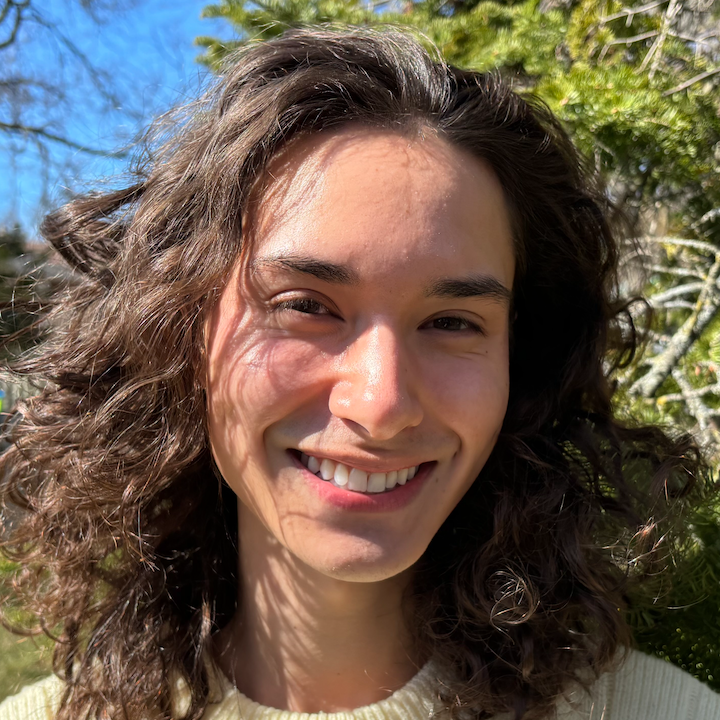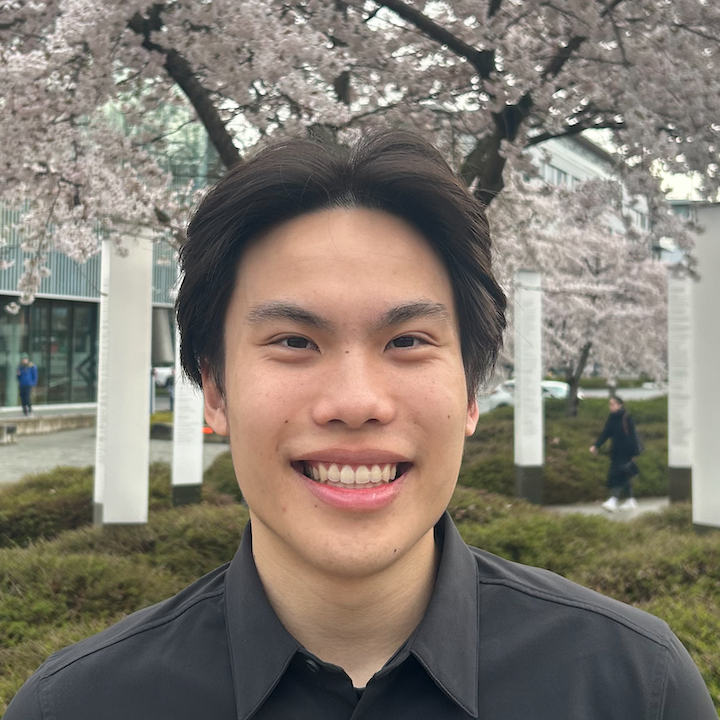
The Edwin S.H. Leong Centre for Healthy Aging is pleased to announce the winners of the 2023/2024 Summer Student Research Award. The award supports the salary of highly qualified undergraduate students while they complete a research project relevant to the field of healthy aging this summer under the supervision of a faculty member in the Edwin S.H. Leong Centre for Healthy Aging. See the 4 winners below:

Tovan Lew, 4th year student in Biomedical Sciences, Trent University
Supervisor: Dr. Helene Cote, Department of Pathology & Laboratory Medicine, UBC
Project Summary: Chronic pain negatively impacts overall aging phenotype and trajectory. In women living with HIV, chronic pain is extremely prevalent yet inequitably treated due to HIV-associated stigma and women-specific barriers to care. As a response to community concerns, Tovan’s project aims to understand the prevalence and experiences of chronic widespread pain in women and link them to socio-structural life experiences and biological aging-associated metrics, including markers of inflammation, immune function, and overall aging phenotype. Tovan will be employing data from The British Columbia CARMA-CHIWOS Collaboration (BCC3) Study – a community-based cohort that has enrolled 600 women to date. We hope that our findings will help shine light on this “invisible disability” and positively inform healthcare for marginalized women in British Columbia and globally.

Asha Octoman, 3rd year student in Microbiology & Immunology, UBC
Supervisor: Dr. Brett Finlay, Departments of Microbiology & Immunology and Biochemistry & Molecular Biology, UBC
Project Summary: Parkinson’s disease (PD) is a progressive age-related neurodegenerative disorder characterized by motor-related symptoms. Results from a recent study led by researchers at UBC demonstrated a link between the gut microbiome and several features of PD (constipation and key serum metabolites) in a clinical cohort of patients living in Vancouver. The overarching goal of Asha’s project will be to compare data from a Vancouver PD cohort with publicly available data from a large and well-validated American metagenomic study. Her research will help identify location-independent elements of the PD microbiome, leading to a better understanding of the potential role of the gut microbiome in disease onset and progression.

Wendy Tsai, 3rd year student in the MD Undergraduate Program, UBC
Supervisor: Dr. Helen Tremlett, Division of Neurology, UBC
Project Summary: The intersection of multiple sclerosis (MS) and aging presents unique challenges as it combines age-related issues with the complexities of a chronic disease. Frailty, defined as a condition of reduced reserve and function due to age-associated decline, has been associated with modifiable factors, such as psychological health and lifestyle. Psychological health is often impacted in MS and influences overall health and community engagement. Lifestyle factors influence the aging process and can be important in managing MS. However, the association between frailty and these factors in MS remains unclear. In the MS population enrolled in the Canadian Longitudinal Study on Aging (CLSA), Wendy will quantify the disparity in frailty based on self-report and blood-based marker-derived indices, relative to normative data in the CLSA. She will also evaluate how these indices relate to psychological health and lifestyle factors in the MS population and explore whether these relationships differ by sex, socioeconomic status, or education.

James Wu, 2nd year student in Cellular, Anatomical & Physiological Sciences, UBC
Supervisor: Dr. Stefan Taubert, Department of Medical Genetics, UBC
Project Summary: The geroscience concept states that age-related diseases can be delayed, prevented, or ameliorated by preventing cellular aging. Mapping the cellular pathways that underpin aging and cell stress can thus help develop a better understanding of disease development. In this project, James will be using the model organism C. elegans to study Nuclear Hormone Receptor NHR-49, an important lifespan and stress response regulator. James’ objective is to examine NHR-49 and its interactions with HMG-11, a transcription factor whose human ortholog HMGA2 has been implicated in age-related diseases such as cancer, to delineate the mechanisms through which NHR-49 supports healthy aging.